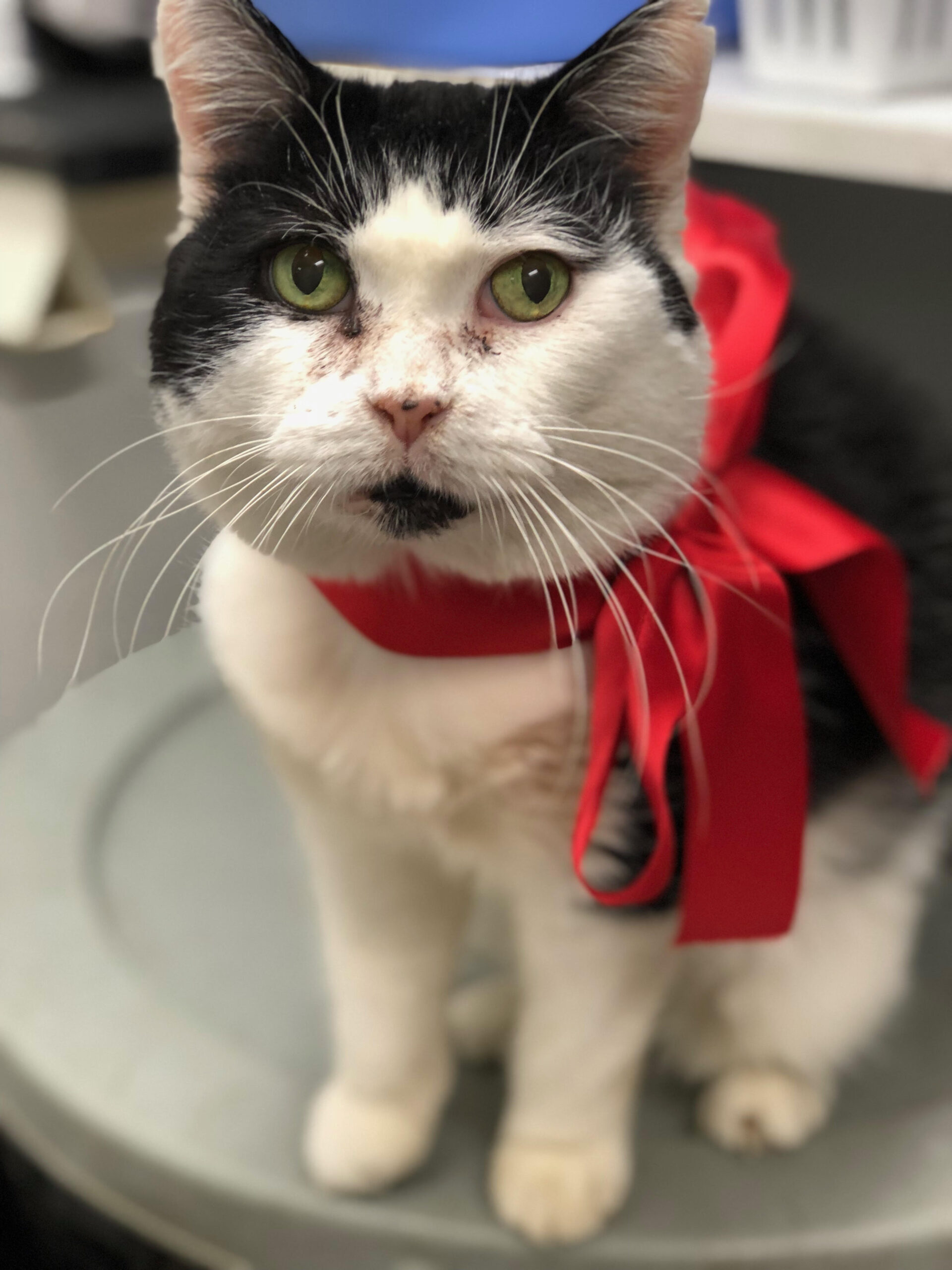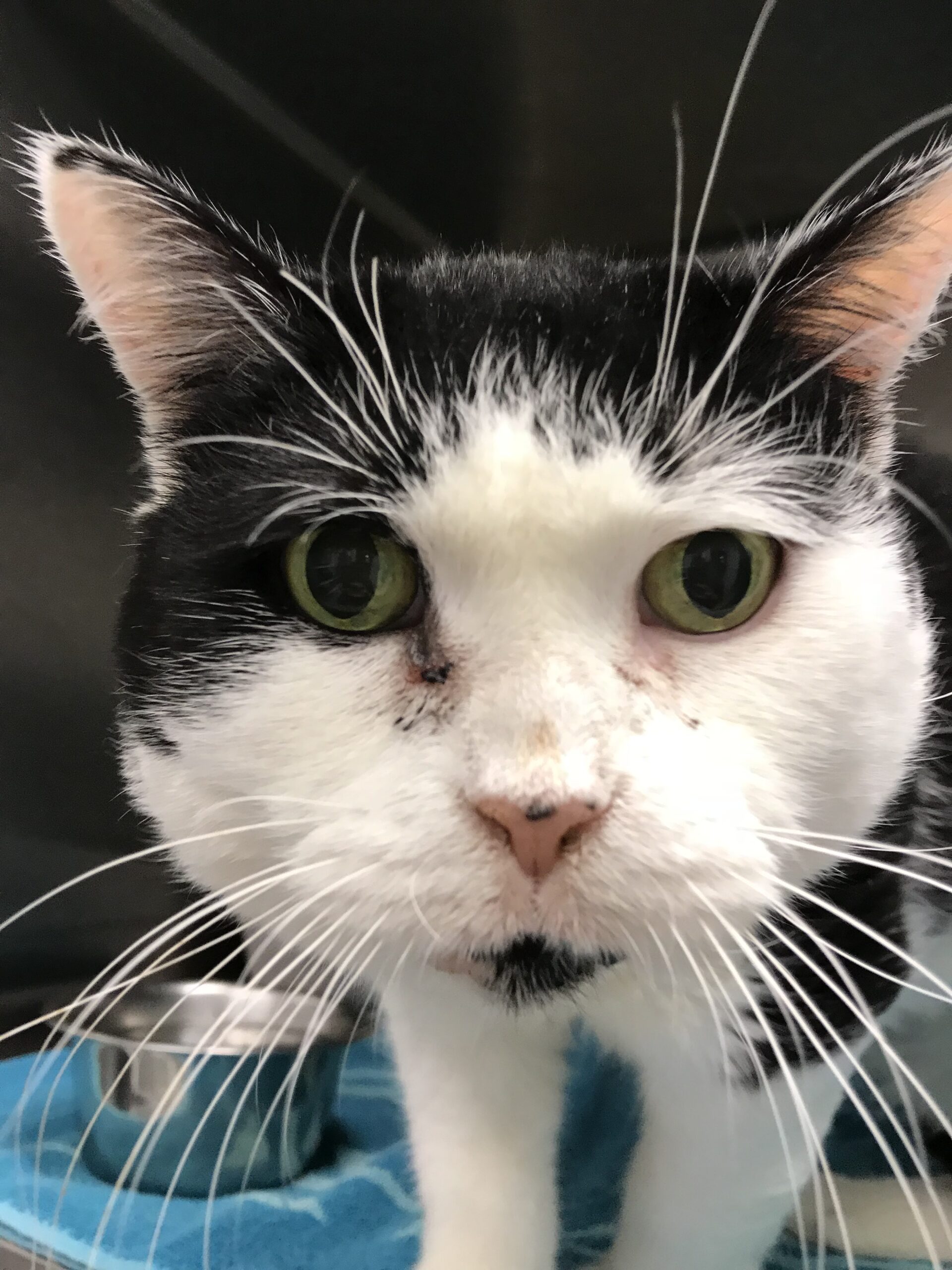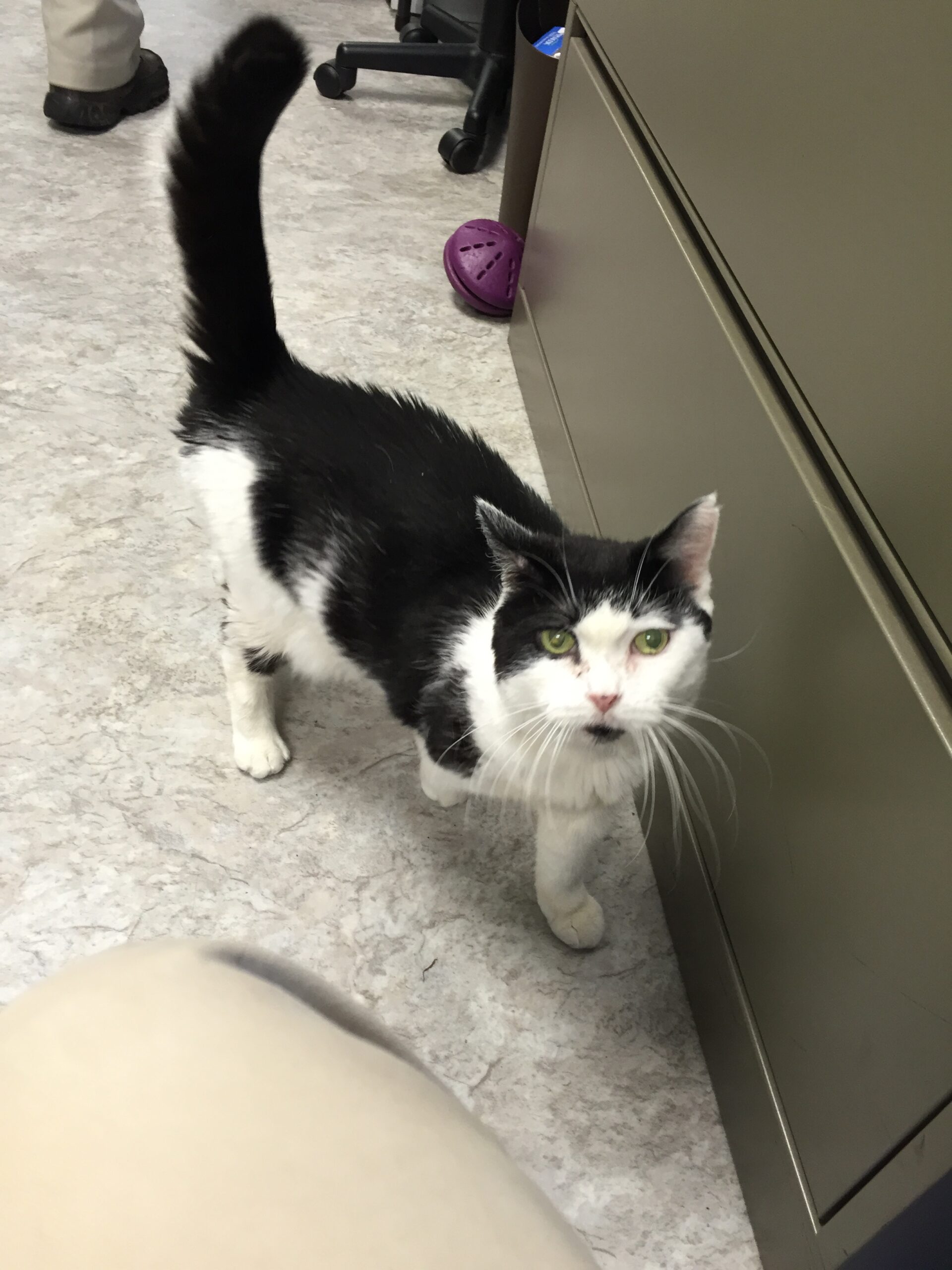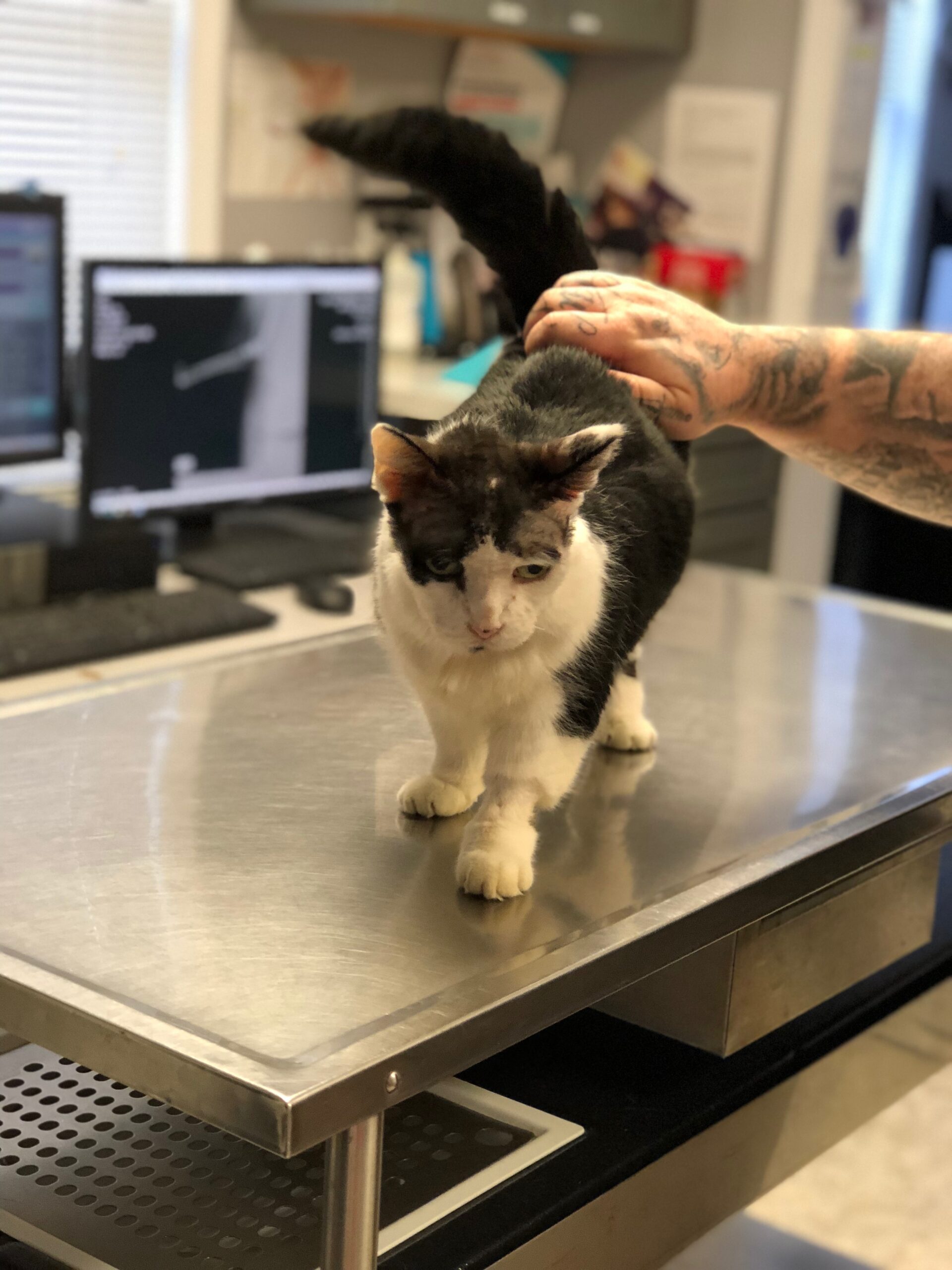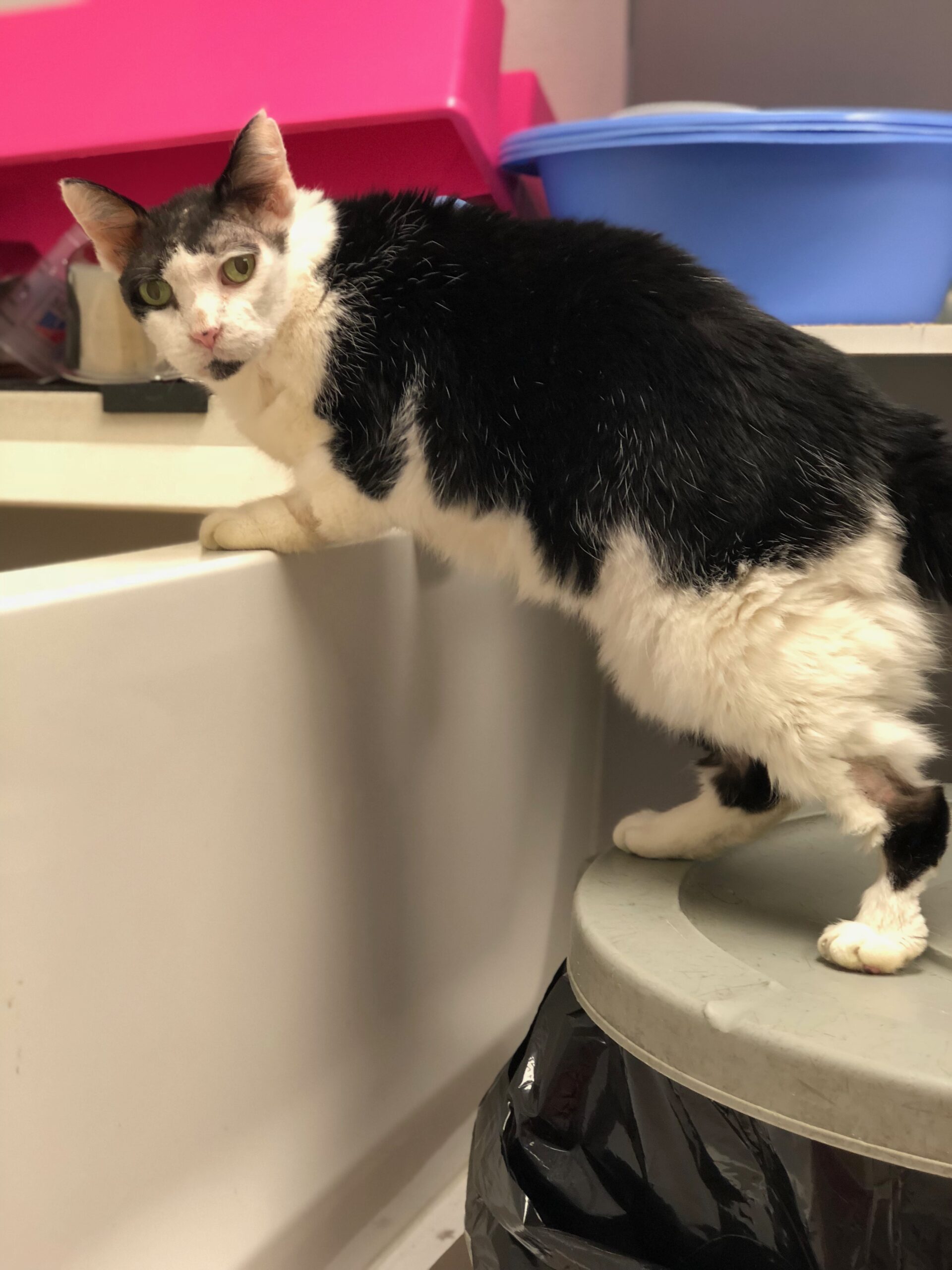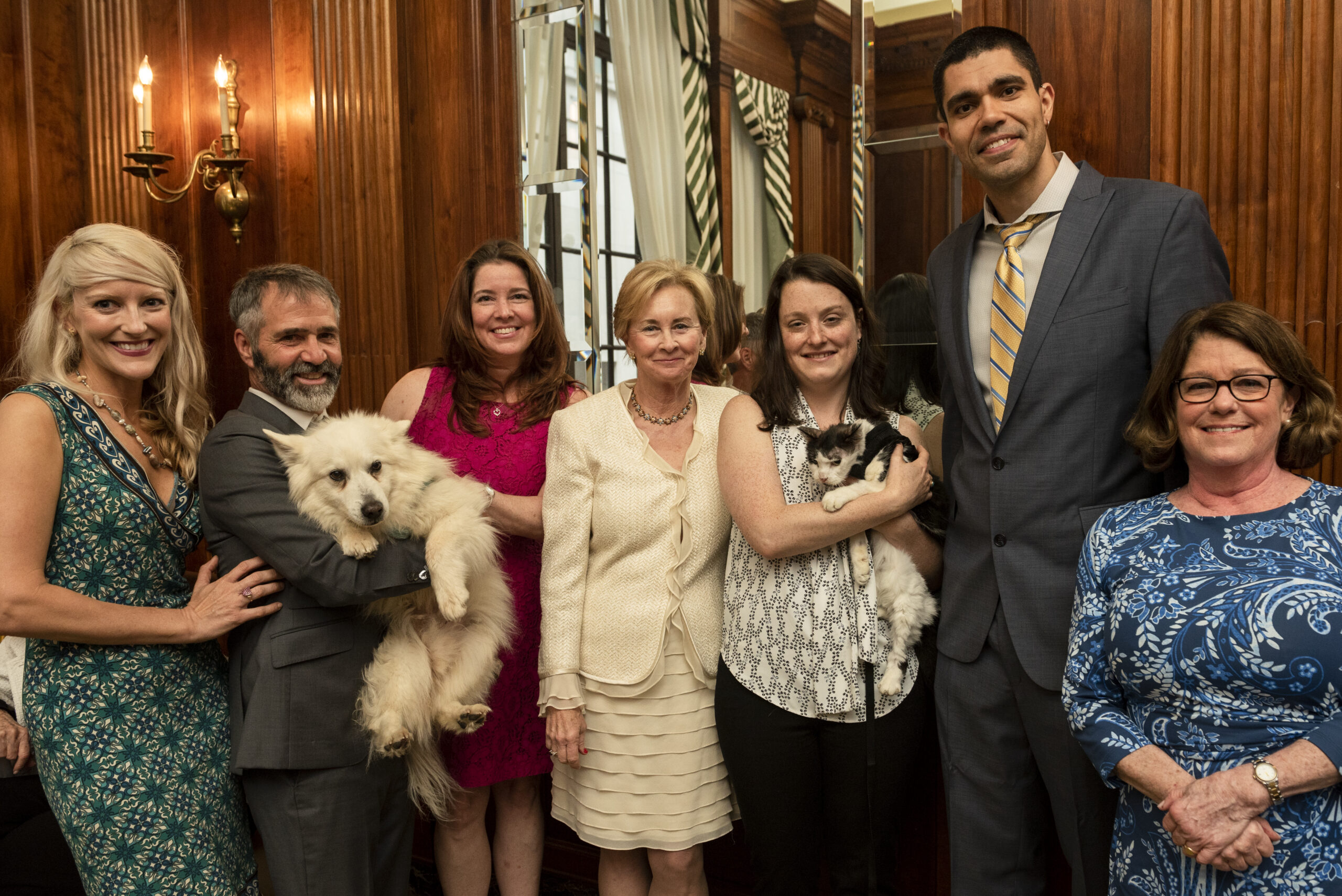Callie
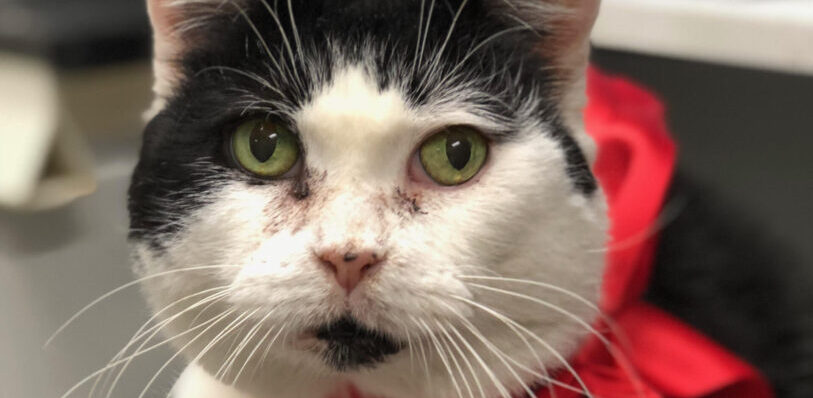
Callie
When Callie’s elderly owner died, an employee at the residential facility where she lived tried hard to continue caring for her. But Callie showed obvious signs of sickness—the once-massive kitty had dropped half her weight, and she no longer had the energy to make her daily rounds visiting the residents and staff. Callie’s caretaker brought her into a local veterinary clinic, knowing that she could no longer be responsible for the cat’s well-being.
“When Callie came in, it was a pretty clear case of diabetes,” said Sarah, a veterinarian in Connecticut, who ended up adopting Callie. “But even with four times the typical ‘heavy’ insulin dose, we couldn’t control it.”
Even so, her sweet nature made Callie an instant celebrity at the clinic, and Sarah vowed to get to the bottom of her health mystery. Trying to think of all the possible causes for such a severe case of diabetes, Sarah screened Callie for acromegaly, a condition in which the pituitary gland secretes too much growth hormone—and she discovered that this was, in fact, the problem.
“The surgery required for such a complicated case was beyond the scope of my veterinary clinic,” said Sarah. “But a friend had done her internal medicine residency at Animal Medical Center in New York, and I knew that if anyone could save her, it was AMC.”
Sarah was right. The Rayner Neuroendoscopy Surgery program at AMC is one of the only veterinary programs in the country with the equipment and expertise to perform such complicated surgeries. Dr. JP McCue, celebrated staff neurologist at AMC, had studied cases like Callie’s.
He had learned a breakthrough procedure through human neurosurgery courses and collaboration with the veterinary pituitary surgery team at Washington State University.
“We performed an MRI to confirm the diagnosis, and it showed a tumor on the pituitary,” said Dr. McCue. “Because of the delicate location of the pituitary beneath the brain, we perform this surgery through the mouth. Removal of the pituitary resolved the diabetes mellitus.”
Using a complex system of cameras, screens, MRI markers and tiny neuro-navigation tools, Dr. McCue made a small incision in the very back of Callie’s mouth, directly under the pituitary’s location in the brain. Two screens guided him: one that showed their work at the surgical site in real time, and another showing a static 3D model of Callie’s brain and the tumor. He then extracted the tumor through the small opening and stitched Callie up.
But Dr. McCue would be the first to say that a complicated procedure such as this one takes a skilled, dedicated team. “The surgery is just the beginning,” he said. “After that, things can change quickly, so we always need a tight plan in place. Callie needed care in a 24-hour ICU staffed with the right people and the right tools, and that’s where AMC shines.”
“It was incredible, what Dr. McCue and his team did for Callie,” said Sarah. “She went in with an extreme case of diabetes that would have been fatal, and 12 hours later she was completely cured!”
And that’s no exaggeration – Callie went from being extremely insulin-dependent, to needing no insulin at all. Dr. McCue described the amount of research that is now going into perfecting this procedure, which indicates that it could be the answer for as many as 25% of all cats with insulin-resistant diabetes. “This surgery is very clearly the gold standard treatment for cats with acromegaly and resistive diabetes,” he explained. “Quite simply, this cures it and saves the cat’s life.”
Callie was the third AMC patient to receive this life- saving surgery, and in the nine months since Callie’s procedure, Dr. McCue and his team have cured six more cats in the same way. He is now working hard to streamline the process, hoping to make it more widely available.
And, because AMC collaborates extensively with both animal and human research partners, the work we do reaches far beyond our patients to save the lives of people and animals worldwide.
Now Callie has a new lease on life, and a new loving owner in Sarah. In fact, Callie was celebrated as an AMC Living Legend in 2018—a well-earned title that she and her medical team fought hard for.































